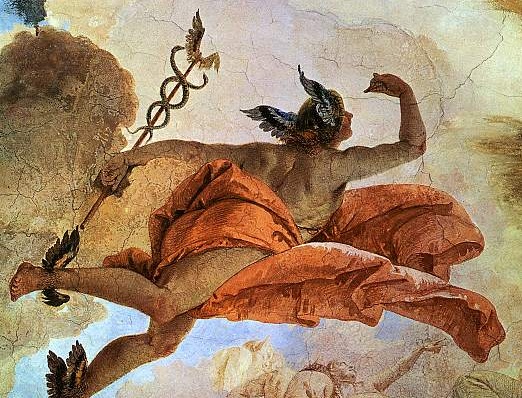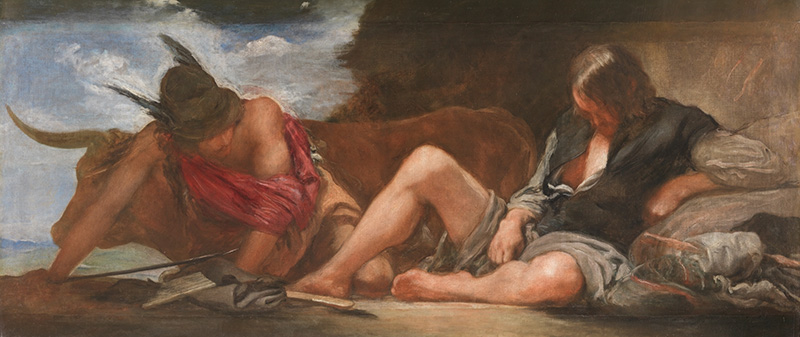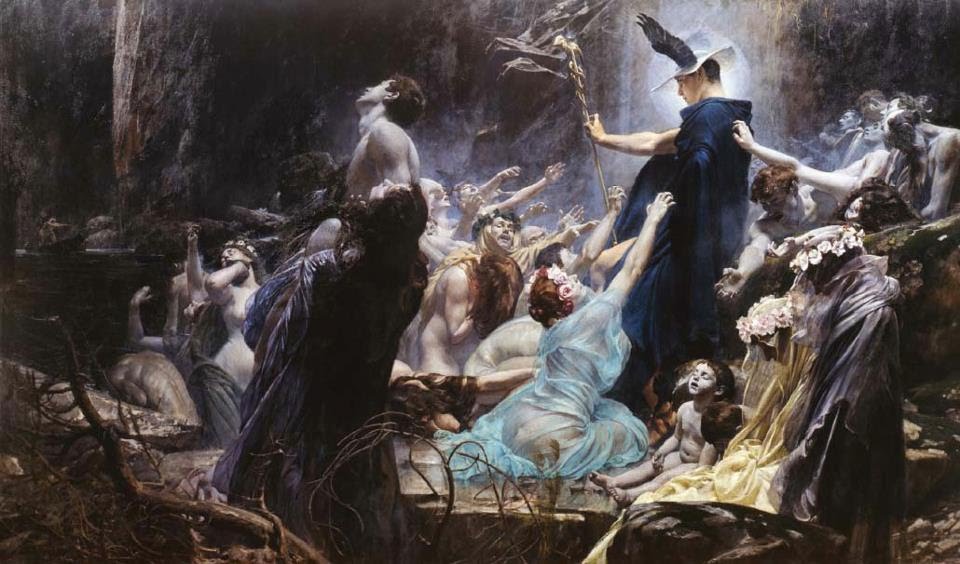Hermes or Mercury
messenger of the Gods and conductor of souls to the afterworld

Hermes (or Mercury in Roman) was the son of Zeus and Maea. His mother gave birth to the mountain Kyllini of Arcadia. From the moment of his birth he showed how cunning he was. While he was only a baby, he stole the fifty cows of Apollo from Pieria. Apollo was very angry and Hermes wanted to make him happy. So he built a lyre - the first in the world - and gave it to his brother Apollo. For the main part of the lyre he used a turtle shell and as for the seven chords, a sheep’s intestines. This myth shows Hermes’ aptitude with music.
In the hierarchy of Olympus he did not seem to hold a high position. He usually executed the commandments of the gods. On the contrary, he was very close to humans. And the myths that people have dedicated to him are very much humane, being with all their defects and their advantages. Thus the mortals considered him more intimate and friendly. That's why he was probably the most popular god.
He was worshiped all over Greece, but more in Arcadia. Besides, it seems that’s where his worship began. He was attributed many qualities that covered most areas of human life: he was considered a preacher and a messenger of the gods and a bearer of their will to the mortals. He was the protector of shepherds and flocks. That is why he is often depicted with a ram on his shoulders, which was his sacred animal. He protected travelers, especially in distant routes. That is why at the crossroads there were columns with three or four figures of Hermes (triform or of quadratic form), which stared at the three or four roads crossing that point. These columns were called Hermae.

When the ancient Greeks would find something on the road, they attributed it to Hermes. That's why the find was called hermaeon. He had thieves and robbers under his protection. However, at the same time, he protected people from the thieves. This was the reason why every house master would put a column in front of his house with Hermes embossing. This way, he believed he was protecting his home from the thieves and from all evil.
He also protected young people in gyms. Particularly the wrestlers. That is why in the gyms there were his statues (Wrestling Hermes). He did not just protect the individual games. He also protected whole cities when making intercessions between them, thus stopping the war. He watched out for the warring terms and conditions of the libations.
A class of people who lived under his protection were the merchants. At that time they called him ‘Kedroos’ Hermes, meaning, ‘the profiting’. He was attributed the invention of measures and standards, as well as the cunning needed in commercial transactions. Because one needs eloquence and persuasive power in trade, he was worshiped as a ‘Agoraeos’ (that is, as a merchant god) and then as a ‘Logios’ (wise) Hermes. Thus he became a protector of the rhetoric art and generally of the letters and those who deal with them.

In addition to the above, he was also attributed relations with the earth. So he was also a god of fertility but also of the underworld (Hathon). That is why on the third day of the Anthisteria, that was a dedication to the dead, they sacrificed only to Cthonios Hermes. That’s because Hermes was the Hade’s soul conductor. Meaning that, he transferred the souls of the dead and gave them to Charon’s boat.
In art he is portrayed as a strong and bearded man. He wears a travel mantle, a scarf on her head and winged sandals. He holds a scepter, the caduceus staff. In later centuries, however, art presents him as a young, well-made, beardless man, and often having a ram on his shoulders.